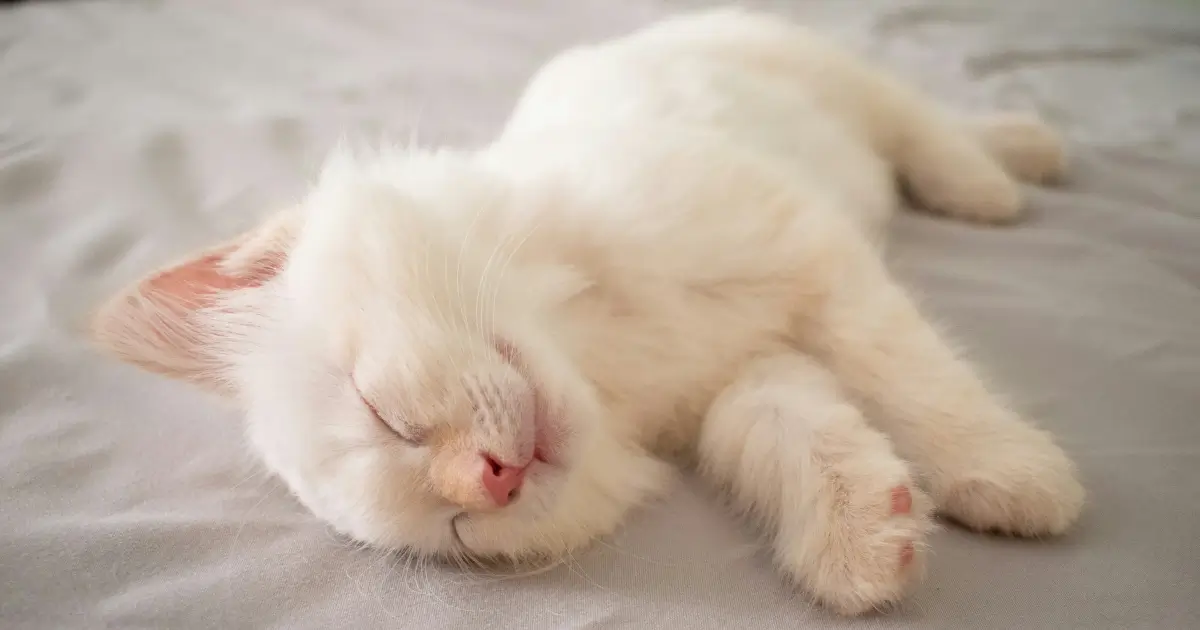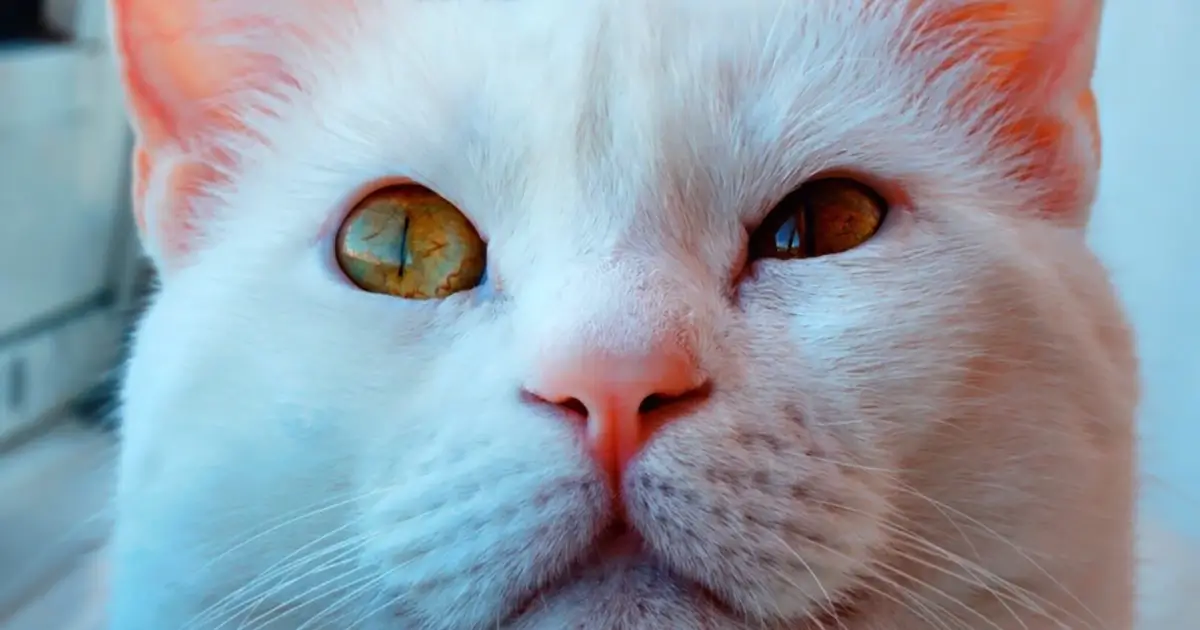Neutering is a common choice for pet owners. It removes a male cat’s testicles. This procedure has many health benefits and helps control the cat population. But, it also changes their behavior a lot.
As a cat owner, knowing what to expect after neutering is key. It helps ensure a smooth transition and the best care for your cat during this important time.
This article explores the changes in male cat behavior after neutering. You’ll see how their behavior changes, from less aggression to different ways of marking territory and socializing. We’ll help you understand these changes, making this big change in your cat’s life easier to handle.
Table of Contents
Key Takeaways
- Neutering can lead to significant changes in male cat behavior, including reduced aggression, altered territorial marking, and shifts in social interactions.
- The recovery process after neutering involves an adjustment period, with gradual physical and behavioral changes over time.
- Proper management of your cat’s environment during the recovery period can help ensure a smooth transition and support their overall well-being.
- Long-term benefits of neutering include reduced roaming tendencies, changes in mating behavior, and improved overall temperament.
- Addressing any challenges that may arise during the recovery process is crucial for ensuring your cat’s successful adaptation to their new post-neutering state.
Understanding the Importance of Neutering Male Cats
Neutering male cats is key to being a responsible pet owner. This simple surgery helps your cat’s health and reduces the cat population. Let’s look at why neutering is good for male cats.
Benefits of Neutering for Cat Health
Neutering has many health benefits for cats. It stops testicular cancer and prostate problems. Neutered cats also roam less, fight less, and are less aggressive. This means fewer injuries and diseases.
Impact on Cat Population Control
Unneutered male cats can lead to more stray and feral cats. This harms local ecosystems and communities. Neutering helps control the cat population, helping both domestic and wild cats.
Cost-Benefit Analysis of Neutering
The initial cost of neutering seems high, but it saves money in the long run. Neutered cats need fewer vet visits and have fewer health problems. This can save pet owners a lot of money over their cat’s life.
Neutering is a caring choice for male cat owners. It helps the health and population of our feline friends. This makes a better future for neutering aftercare cat and male cat before and after neutering.
Immediate Post-Surgery Recovery Process
After your cat has been neutered, the cat recovery after spaying or cat neuter recovery starts. Knowing what to expect is key to a smooth recovery for your cat.
In the first 24-48 hours, your cat might feel a bit sore and sleepy from the anesthesia. They might sleep a lot as their body heals. Make sure they have a quiet, comfy place to rest and don’t overdo it physically.
- Keep an eye on your cat’s hunger and make sure they drink water, but wait to feed them until they’re more awake and active.
- Watch the incision site for swelling, redness, or discharge, and call your vet if you notice anything off.
- Use a cone or collar to stop your cat from licking or scratching the surgery area.
As time goes on, your cat will start to feel better. They’ll get more active and might even start eating again. Keep an eye on how they’re doing and follow your vet’s advice for a full recovery.

Male Cat Behavior After Neutering: Common Changes to Expect
Neutering your male cat can lead to big changes in his behavior. As his testosterone levels go down, he might act differently. Knowing these changes can help you support your cat better after surgery.
Reduction in Aggressive Behavior
One big change after male cat neutering is less aggression. Testosterone makes cats mark territory, fight, and show dominance. As cat’s testosterone levels decrease after neutering, your cat will likely be calmer and more gentle.
Changes in Territorial Marking
Another change is less territorial marking. Unneutered male cats spray urine to mark their territory. But, this behavior goes down as cat’s testosterone levels drop. You’ll see your cat marking less around the house.
Shifts in Social Interaction
Neutered male cats also change how they interact with others. They might be more loving, less likely to fight, and more playful. This is because of the drop in testosterone after neutering.
Timeline of Behavioral Changes Post-Surgery
Knowing when your male cat will change after neutering is important. This change happens as the cat’s hormones and instincts adjust. Let’s look at the main points in this journey.
Right after male cat before and after neutering, you might see some changes. For example, the cat’s territorial marking and aggressive tendencies will likely lessen in the first few days.
- In 2-3 weeks, the cat’s roaming and wandering might decrease as testosterone levels drop.
- By 1-2 months, the cat’s mating behaviors and vocalization patterns will change a lot. This shows the shift in their hormones.
- After 3-6 months, most male cats become more docile and affectionate. This is because neutering’s long-term effects kick in.
Remember, each cat is different, and they adapt at their own speed. Being patient and understanding is crucial during this time.
Physical Changes and Recovery Milestones
Neutering your male cat is a key part of being a responsible pet owner. It’s important to know about the physical changes and recovery milestones your cat will go through. By watching these closely, you can help your cat recover smoothly and care for them well during the neutering aftercare cat process.
Activity Level Adjustments
Right after the surgery, your cat might not want to move around as much. They might sleep a lot. Make sure they have a comfy and quiet place to rest. Encourage them to play gently and slowly bring back their usual exercise as they get better.
Appetite and Weight Management
- Your cat’s hunger might change after the surgery. Keep an eye on how much they eat to keep their weight healthy.
- Give them a balanced diet and fresh water. This helps them recover well and avoids cat neuter recovery problems from weight changes.
Wound Healing Progress
- The cut from the surgery should heal in 10-14 days. Watch it closely for any signs of infection or problems.
- Don’t let your cat lick or scratch the area. It can mess up the healing. If you see any issues, talk to your vet right away.
By keeping an eye on these physical changes, you can make sure your cat has a smooth neutering aftercare cat experience. This helps them recover quickly and comfortably.

Managing Your Cat’s Environment During Recovery
After your cat has been neutered, it’s key to make their space comfy and safe. This helps them recover well from cat recovery after spaying or neutering aftercare cat. Here are some tips to make their recovery smoother:
- Litter Box Placement: Make sure the litter box is easy to get to and in a quiet spot. Don’t move it while they’re recovering, as it can confuse them.
- Restricted Outdoor Access: Keep your cat inside and limit their outdoor time until their wound heals. This keeps them safe from harm and prevents problems.
- Manage Interactions with Other Pets: Slowly introduce your recovering cat to other pets in the house. Watch them closely and give them their own space. This helps keep everyone calm and stress-free.
- Create a Comfortable Resting Space: Make a cozy, quiet spot with their favorite things. This includes bedding, toys, and water bowls. It encourages them to rest and relax during their cat recovery after spaying or neutering aftercare cat time.
By managing your cat’s environment, you can help them recover smoothly. This promotes their health and happiness, helping them get back to their normal self.
Long-term Behavioral Benefits of Neutering
Neutering can change a male cat’s behavior for the better. It makes for a happier and more loving relationship with your cat.
Impact on Roaming Tendencies
Neutering can stop male cats from wandering off. Unneutered males roam to find mates, risking injury or getting lost. After neutering, they stay closer to home, feeling safer and happier.
Changes in Mating Behavior
Neutering stops male cats from spraying, meowing loudly, and fighting with other cats. These actions are caused by hormones that neutering removes. So, neutered cats are more loving and friendly to people and other cats.
Overall Temperament Improvements
Neutering also makes male cats calmer and more loving. They become better indoor pets, enjoying time with their owners. This change makes for a happier home for both the cat and its family.
Potential Challenges and Solutions During Recovery
After a cat’s neutering surgery, owners might face some challenges. Knowing these issues and how to solve them can make the cat neuter recovery easier for everyone. It ensures a stress-free time for both the cat and the owner.
Managing pain and discomfort is a big concern. Cats might show signs like less appetite, being very tired, or meowing a lot. Owners should follow the vet’s advice on pain meds and make sure the cat has a quiet, comfy place to rest.
- Give small meals often and make sure the cat drinks water to help heal.
- Don’t let the cat do too much or play too hard.
- Call the vet if the cat seems really in pain or uncomfortable.
There’s also a chance of neutering aftercare cat problems like infection or bleeding. Owners should watch the surgery area for any signs of trouble. If they see redness, swelling, or discharge, they should call the vet right away.
- Follow the vet’s instructions for cleaning the area and using any special creams.
- Keep the cat away from the surgery area to stop them from licking or scratching it.
- Let the vet know if the cat acts differently or seems uncomfortable.
By being quick to address these challenges, cat owners can help their pets recover smoothly and successfully.
Conclusion
Neutering your male cat is a smart choice that improves their behavior and health. It reduces aggression and changes how they mark territory and interact with others. These changes are well-known and beneficial.
We’ve looked at how cats recover from neutering, the timeline of behavior changes, and long-term benefits. Knowing how male cats behave after neutering helps you support their transition. This ensures a smooth and successful recovery.
Being a responsible pet owner means caring for your cat after surgery. You need to create a supportive environment and be patient as they adjust to their new hormonal balance. By focusing on your cat’s health, you improve their life and help control cat populations. With care and attention, you’ll enjoy a more loving and peaceful bond with your cat.
FAQ
How long does it take for a male cat’s testosterone to go away after neutering?
It usually takes 2-4 weeks for testosterone levels to drop after neutering. But, it can take up to 6-8 weeks for testosterone to completely go away.
What changes can I expect in my male cat’s behavior after neutering?
Neutering can make your cat less aggressive. They might fight less, roam less, and mark less. They might also become more loving and less territorial.
How long does it take for a male cat to recover from neutering?
Cats usually recover from neutering in 7-10 days. Keep them quiet and watch the incision for any problems during this time.
Will neutering affect my male cat’s appetite and weight?
Yes, neutering can change your cat’s appetite and weight. Neutered cats might gain weight because they eat more. Watch their food and adjust their diet if needed.
How can I make my male cat’s recovery after neutering more comfortable?
Give your cat a quiet, comfy place to rest. Keep the incision clean and dry. Follow your vet’s advice on pain and activity limits.









